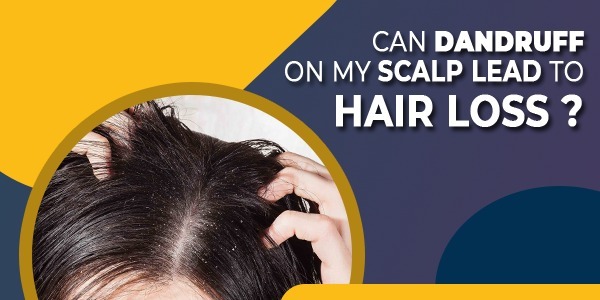Dandruff is a skin condition that causes flaky skin on the scalp. On your shoulders, this skin frequently flakes off and leaves behind white flakes. Dandruff can also lead to hair loss in some people. Is it dandruff’s fault?
Dandruff, in most cases, is not directly associated with hair loss. On the other hand, the itchiness it causes may cause scratching. This can damage your hair follicles, causing some hair loss but not complete baldness. Furthermore, dandruff can exacerbate hair loss in people suffering from androgenic alopecia, a condition that causes male and female pattern baldness.
How to Prevent Dandruff-Related Hair Loss
The goal of preventing dandruff-related hair loss is to eliminate as much itchiness as possible. This will reduce your desire to scratch while also protecting your hair follicles from further damage.
Get a diagnosis Done
Dandruff can be caused by several factors, ranging from improper hair care to underlying skin conditions. If you are not sure what’s causing your dandruff, see your doctor or dermatologist.
They can examine your scalp to determine whether your dandruff is caused by washing your hair too frequently or insufficiently. They can also look for indicators of an underlying issue, such as:
- Dry skin. This causes small flakes that aren’t usually accompanied by redness or inflammation.
- Seborrheic dermatitis. This condition results in a rash that is typically red, scaly, and oily. Skin flakes that form can be white or yellow.
- Malassezia. Malassezia is a fungus that is common on most people’s scalps. It may, however, irritate your scalp and cause the growth of extra skin cells. Dandruff can occur when these skin cells die.
- Contact dermatitis Sensitivity to certain ingredients in hair or scalp care products, such as certain hair dye or shampoo, can result in red, flaky skin.
You can treat your dandruff more effectively once you’ve determined the underlying cause.
Use a medicated shampoo
Try a medicated shampoo made to treat dandruff if you haven’t already. Keep an eye out for products with any of the following ingredients:
- pyrinthione zinc
- salicylic acid
- ketoconazole
- selenium sulfide
If you have mild dandruff, you may only need to use medicated shampoo for a few weeks.
Add moisture
Whatever the cause of your dandruff, it’s critical to hydrate your scalp with conditioner. This is especially important when using salicylic acid-containing medicated shampoos. Massage your scalp with coconut oil and then rinse it out for added benefit. In addition to being moisturizing, coconut oil is antifungal.
Avoid irritating hair products
- Ingredients that irritate the skin are frequently found in hair dye and other hair products.
- Contact dermatitis can result from this. Contact dermatitis of the scalp is frequently brought on by preservatives and fragrances.
Among the potentially irritating ingredients in hair products are:
- natural or artificial fragrance
- bleach
- detergents
- formaldehyde
Some people will use a product for years before noticing any sort of reaction. Even if you’ve been using the same hair products for a long time without incident, Hair Transplant experts at Raipur suggest changing things up if you notice dandruff.
Manage stress
Although stress does not directly cause dandruff, it can affect and weaken your immune system over time. This can increase your scalp’s sensitivity to the naturally occurring Malassezia fungus. You can better manage your stress by practising relaxation techniques like yoga or meditation. Even a quick walk around the block or a minute or two of controlled breathing can help.
Key Takeaways
Dandruff does not cause hair loss right away. On the other hand, frequent scalp scratching can harm your hair follicles and result in some hair loss. This is temporary and should go away once you figure out what is causing your dandruff. If you are unsure of the cause, the Best Hair Transplant doctor at Auqual hair Services can assist you.

